Can Christmas Lights Start A Fire
Christmas lights can start a fire. However, you can do a few things to minimize the risk.
You first need to know that Christmas lights aren't dangerous in themselves. The danger comes from their environment — heat sources and flammable materials.
Christmas lights are long strings of tiny light bulbs (or LED lights) strung together on a wire. The wires are often made of plastic or metal, but they don't pose much fire risk unless they're hot. Even then, if you ensure the wire is excellent before plugging it into an outlet again, you shouldn't have any problems with flames.
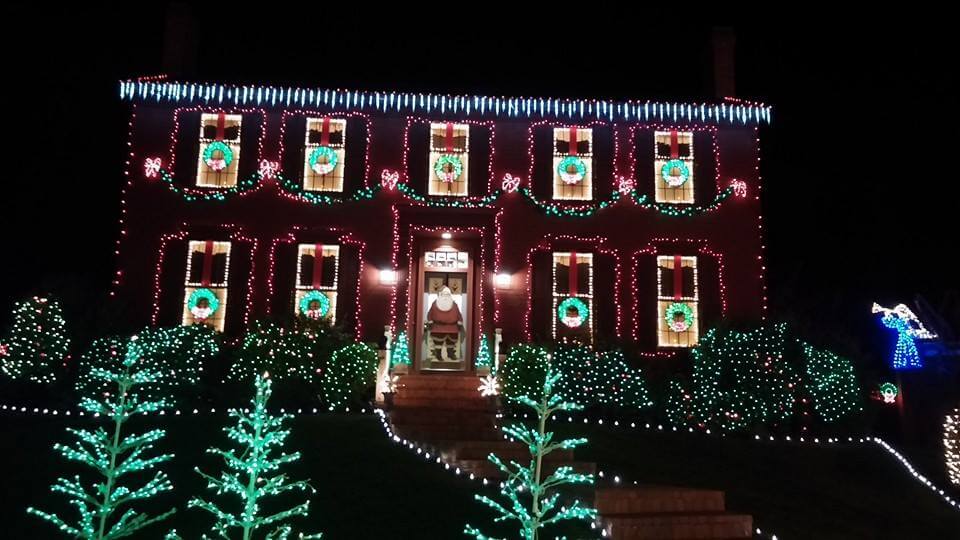
How Many House Fires Are Caused By Christmas Lights?
The National Fire Protection Association reports that Christmas lights cause 770 house fires yearly. Many of these fires are caused by faulty electrical connections or overloaded circuits. If you have many lights, you should ensure that your extension cords are rated for the load they will carry and that they have three-pronged plugs — not two-pronged plugs — to prevent shocks and fires.
Keep an eye on your lights and ensure they aren't overheating; if they are, unplug them immediately. Don't place them near anything flammable, such as trees or bushes, and avoid using outdoor lights indoors.
If you're planning to put up outdoor decorations, make sure they're safe before doing so.
During the holidays usually there are around 770 house fires a year due to Christmas lights. The Red Cross made a factsheet on house fires during the holidays that you might want to read. A few of the different fire starters are Christmas trees, decorations, candles or cooking according to NFPA.
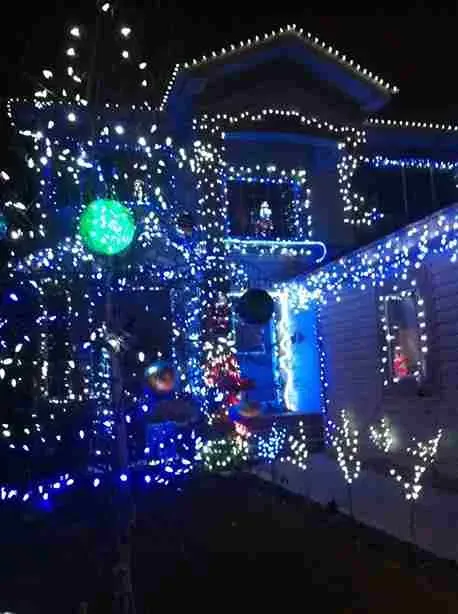
Is It Ok To Leave Christmas Lights On All Night?
It's that time of year again! Christmas lights are up, the tree is decorated, and you're ready for the holiday season festivities. But is it safe to leave your led Christmas lights on all night? The short answer is yes, it's safe if you follow some basic safety rules.
Christmas lights are designed to be plugged in and left on for several days. They don't produce heat or use electricity when they're not plugged into an outlet, so there's no fire danger. The only thing that could go wrong is if the lights get tangled with something else and stop working. But if that happens, unplug and untangle them before plugging them back in.
If you're going to leave your Christmas lights on overnight or for more than three days at a time, ensure an electrician or UL-approved tester has tested them before use.
Also, ensure they're connected properly; loose connections can cause sparking or arcing — which could ignite nearby combustible materials or start a fire — when electricity flows through them during use or when they're being used on temporary wirings, such as extension cords.
One faulty bulb or connection is all it takes to ruin a string of Christmas lights — and put your home at risk for fire. So check each set of lights thoroughly before putting them up, and don't hesitate to replace any that look worn or damaged.
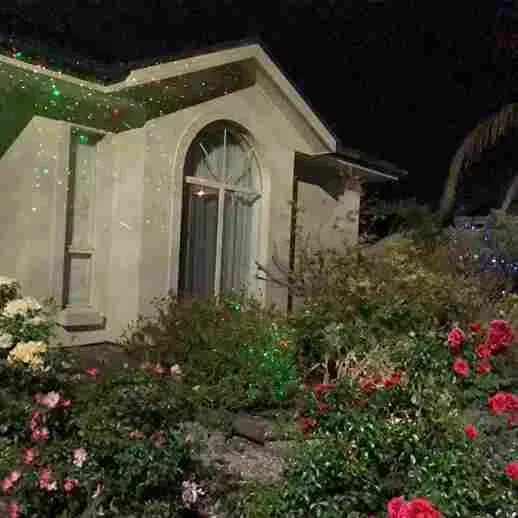
Can Christmas Lights Catch On Fire If Left On Too Long?
Christmas lights don't typically catch fire due to their design or construction. Instead, people leave them on too long and allow them to overheat. The longer you have your Christmas lights on, the greater the chance they'll overheat and potentially start a fire in your home.
When Christmas red lights get hot enough, they can cause damage to themselves and surrounding items in two ways:
They can melt the insulation on power cords, which then causes short circuits inside the cord. These short circuits ultimately lead to overheating and smoke coming from the cord itself.
The heat generated by the wires causes nearby objects (like furniture) to ignite due to thermal transfer — essentially transferring heat from one thing (the wire) to another (the table).
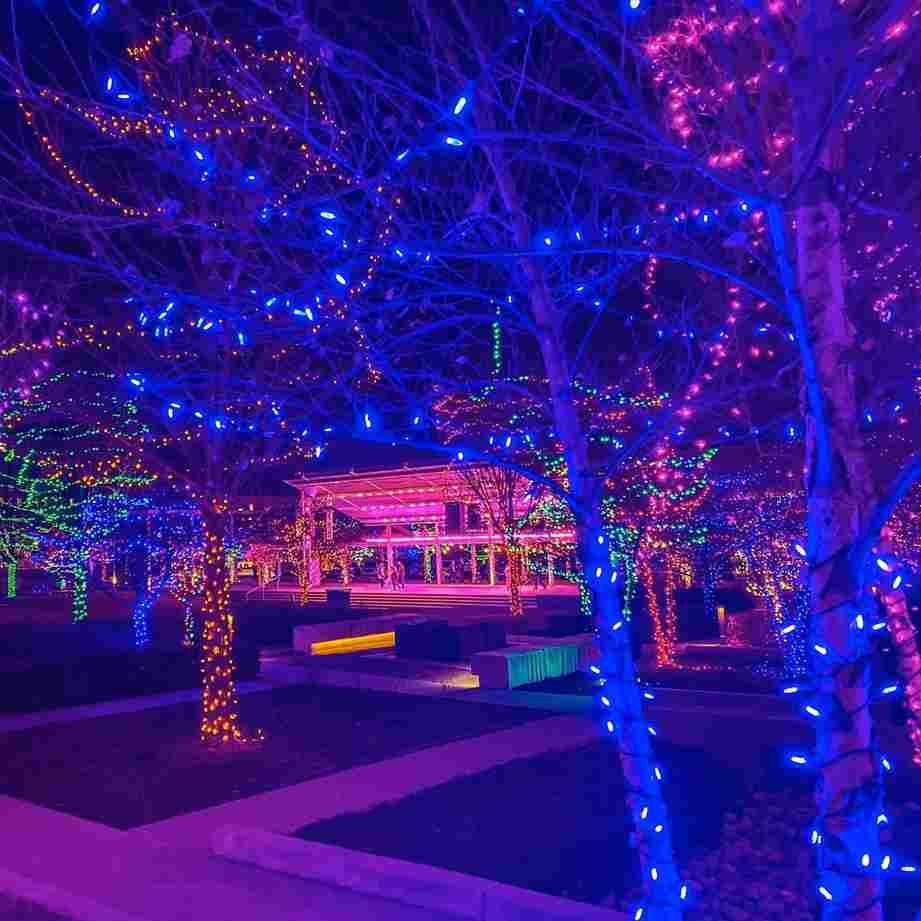
Can Christmas Lights Set Wood On Fire?
Yes, Christmas lights set the wood on fire. Most Christmas tree fires occur when decorations near heat sources, such as candles and fireplaces, or when live trees are placed too close to heat sources.
Christmas tree lights fire is preventable if you follow these safety tips:
- Don't overload electrical outlets with too many strings of lights or other electric items.
- Keep candles away from your tree and other decorations.
- Don't burn candles near anything flammable, including pets and children. If you use candles on or around your tree, keep them low to the ground, so they don't tip over and start a fire.
- Place the tree away from any heat source, including radiators, vents, and fireplaces.
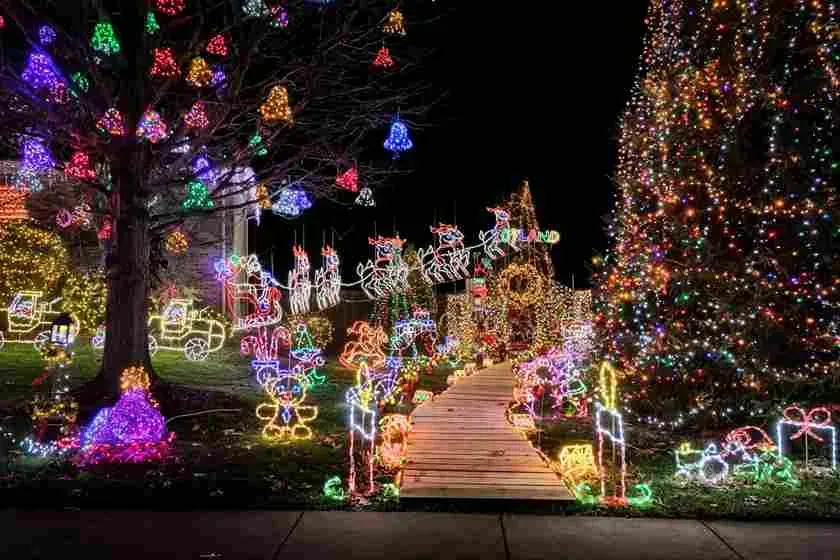
How Often Do Christmas Trees Cause Fires?
Christmas trees are a major part of the winter festival but present a significant danger. U.S. fire departments responded to an average of 160 home fires that started with Christmas trees each year between 2015- 2019. These caused an average of two deaths, 12 injuries, and $10 million in direct property damage annually.
Almost half of the Christmas tree fires were started by electrical distribution or lighting equipment. Christmas Lighting was the cause of nearly one in five Christmas tree fires.
WE CAN HELP WITH ANY SITUATION AND WE'RE READY TO GIVE YOU A FAIR CASH OFFER!
Enter Your Information Below it is Quick, Easy & Free!
Get Cash Offer
Is It Safe To Leave Outdoor Christmas Lights On Overnight?
No. Outdoor Christmas lights are beautiful holiday decorations but can also be a fire hazard.
Christmas lights can start fires if they're left on overnight or if they're not installed correctly.
Christmas lights were involved in more than 300 house fires from 2007 to 2011, according to the U.S. Fire Administration (USFA). Most of these fires were caused by people leaving them on overnight and not following the manufacturer's instructions for installation and usage.
Most Christmas light fires are caused by short circuits or overloading electrical circuits with too many lights, according to USFA statistics. Short circuits occur when two wires touch each other and create an unintended electrical current. If you have a short circuit, some lights may go dim or out completely while others continue to function normally until they burn out from overheating or overloading the circuit.
How Often Do Christmas Trees Cause Fires?
Christmas trees are a major part of the winter festival but present a significant danger. U.S. fire departments responded to an average of 160 home fires that started with Christmas trees each year between 2015- 2019. These caused an average of two deaths, 12 injuries, and $10 million in direct property damage annually.
Almost half of the Christmas tree fires were started by electrical distribution or lighting equipment. Christmas Lighting was the cause of nearly one in five Christmas tree fires.
A few other causes of fires are air fresheners, fans, toasters, mice and dryers.
Is It Bad If Christmas Lights Get Hot?
Christmas lights can get hot, but it's not the heat that causes a fire. The risk is from an electrical short circuit.
A Christmas light bulb is a small incandescent bulb made by enclosing a tungsten filament in a glass bulb filled with inert gas. When you plug in your Christmas lights, the power flows to the end of the line through each bulb and back down again. It creates heat, which can cause damage to the bulbs or even fire if there's any damage to the insulation on the wires.
If one bulb goes out early in the string, it can also cause other bulbs to fail. If a few bulbs go out at once, that's usually not enough to trip a circuit breaker or blow a fuse — but it can be enough to create an overload condition that leads to overheating and failure for all of the remaining bulbs in the string.
Do Christmas Lights Get Hot Enough To Start A Fire?
Christmas holiday lights get hot enough to start a fire. The longer answer is that it depends on your Christmas light setup and the type of bulb you use.
Christmas lights can get hot enough to start a fire if they aren't installed correctly or used in an enclosed space.
If you have a strand of lights that have been tangled or damaged in some way, that will cause problems. If your house has been wired incorrectly, there will be issues. If you don't have adequate space above your head for safety reasons, there could be issues. All these factors can contribute to the likelihood or possibility of a fire being started by Christmas lights.
Selling As An Option If Christmas Lights Caused A House Fire
If Christmas lights caused a house fire, selling your fire-damaged property can be a practical choice. The aftermath of a fire incident can be distressing, especially when caused by holiday decorations. In such situations, opting to sell your fire-damaged property allows you to avoid the complexities and costs associated with repairs and restoration. By considering this option, homeowners can efficiently navigate the selling process and attract potential buyers interested in fire-damaged properties. Selling the property as-is provides a swift solution, enabling you to move forward and find a new home without the burden of a fire-damaged house caused by Christmas lights.
Can I Put Christmas Lights On My Curtains?
When hanging up Christmas lights on your curtains, it is essential to remember that the curtains will not be able to support the weight of the lights. It can cause them to fall or tear in places where they are stretched too tightly.
If you want to hang up your curtains with Christmas lights, ensure that you do not hang them from any rod or curtain rod so that the weight of the lights themselves will not tear them.

Happy Customers




